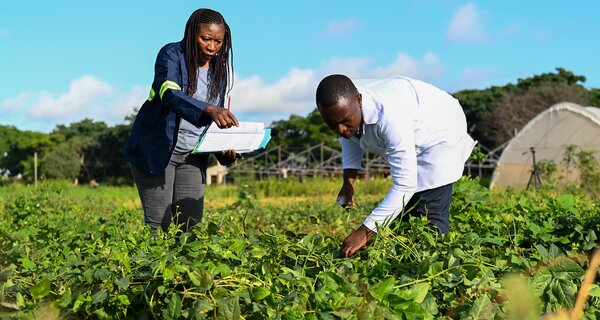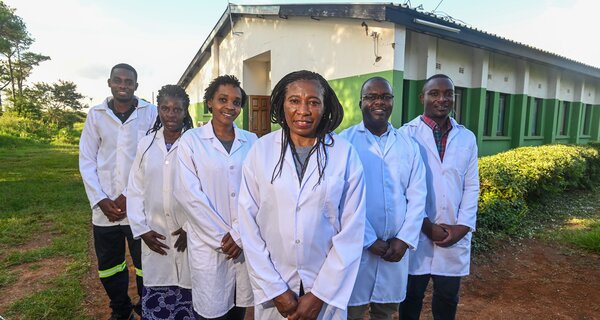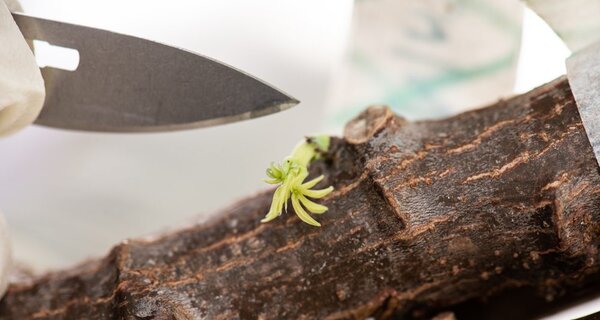Banking on Diversity in Nigeria: A Winning Team
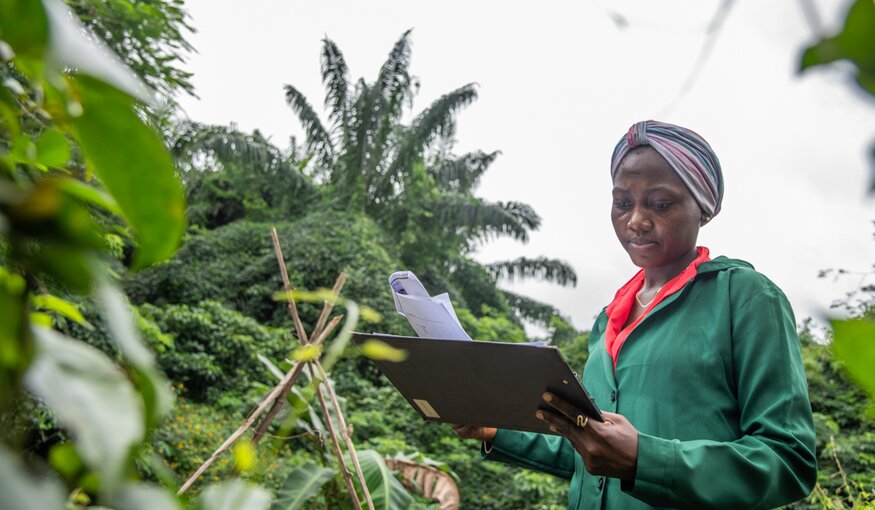
Field assessment at the NACGRAB field genebank in Ibadan, Nigeria. October 2023. (Photo: Georgina Smith/Crop Trust)
20 February 2024
With a pair of tweezers, Mary Aditiku picks up a tiny okra seed, turns it over, and puts it back in place. Her hand is steady; her movements are precise. She repeats this action dozens of times, moving quickly across the plastic dish, where the seeds are resting on tissue paper.
Mary is carrying out viability testing. “A viability test is paramount in genebanks,” she explains. Periodic testing helps scientists assess the quality of seeds stored in the genebank – their health and vigor. On any given day, Mary will examine hundreds of seeds. It’s a demanding job, one that never ends. But without it you do not have a genebank.
Mary works at the National Centre for Genetic Resources and Biotechnology (NACGRAB) in Ibadan, Nigeria. She coordinates the process of acquisition of crop diversity into the NACGRAB genebank, and also viability testing once the diversity is in the genebank.
“We conserve crop diversity to make it available. It does not make sense to bring seeds into the genebank that will not germinate. If anyone requests them in the future, I will be sure that what I’m giving out is of good quality,” she explains.
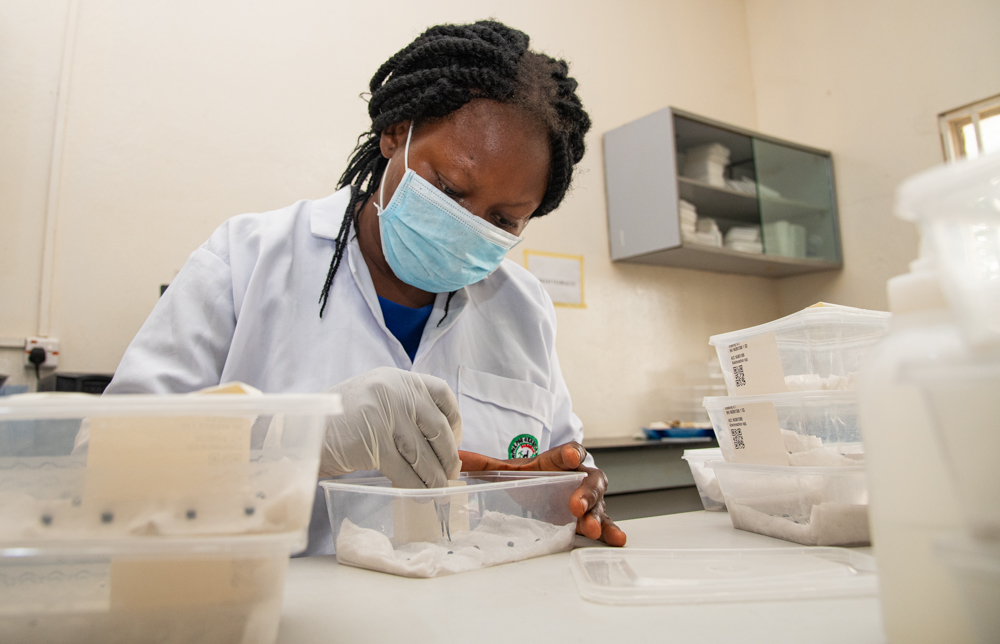
Mary Adiat Adegoke testing seed viability at the NACGRAB genebank in Ibadan, Nigeria - October 2023. (Photo: Georgina Smith/Crop Trust)
Mary is a key member of the team of NACGRAB scientists that is responsible for conserving the foundation of Nigeria’s national food security. The genebank houses more than 11,000 samples of diverse crops – including food security staples such as sorghum and cowpea – crop collections whose use has been given a boost lately under the Crop Trust’s Seeds for Resilience Project.
“Diversity from these two crops has been collected from different ecological zones all across the country and tested for diseases and specific traits such as drought resilience. These materials are an important part of NACGRAB’s crop diversity collection. It’s what feeds millions of Nigerians,” notes Anthony Okere, NACGRAB’s Acting Director.
Giving Diversity Back
Under Seeds for Resilience, Okere and his team have invited farmers to help evaluate the diversity of crops stored in the genebank’s cold rooms.
“The genetic diversity housed at the genebank is not useful if it is only stored. It must be shared with farmers to help them build robust resilience to specific climate challenges,” he says. "A unique component of the project has been identifying crop diversity that is already in our collections and putting it back in farmers' hands.”
Diverse seeds were made available to so-called "user engagement groups", made up of farmers who tested the ability of seeds to cope in a varied range of conditions in Oyo, Niger and Kano states.
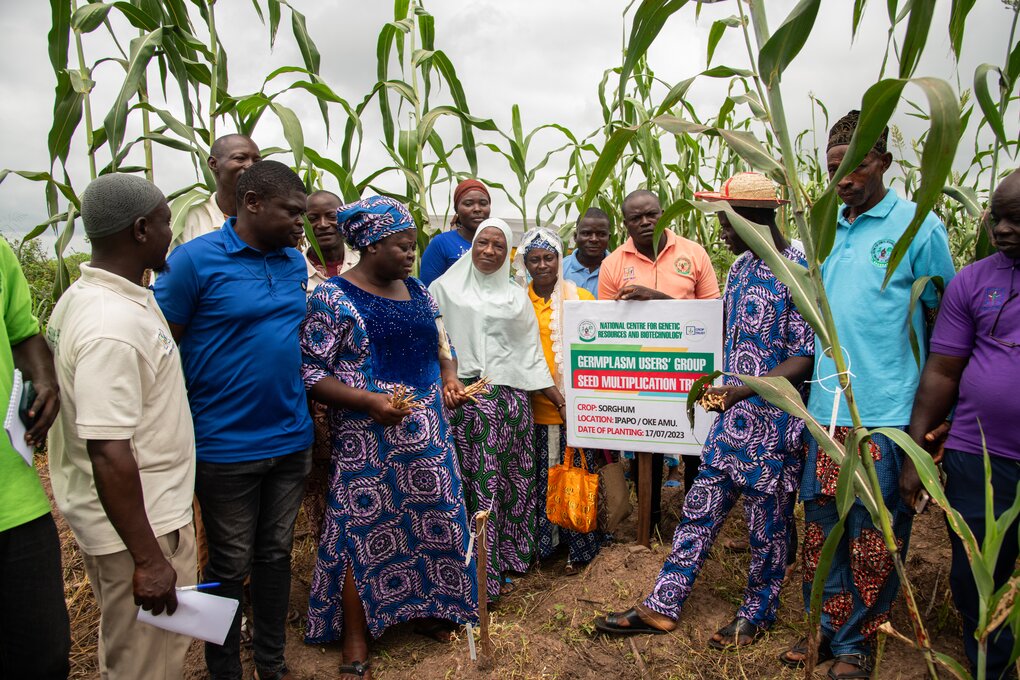
Farmer Peter Kayode Oguntona examines sorghum varieties in the field, Oyo State, October 2023. (Photo: Georgina Smith/Crop Trust)
“We are used to knowing and growing just one or two varieties,” he said. “But thanks to this collaboration, we now have more options. If one does not yield well, we can plant another. That’s good for our food, and our income.”
More than Meets the Eye
“All seeds might look the same,” says Abisoye Ojo. “But here at the NACGRAB molecular biology and tissue culture lab, we study the genetics of a seed to know whether specific samples can withstand drought, or not, in a particular part of the country,” she notes.
The lab is set up to ensure that specific traits that farmers believe are present in the seeds they have selected for evaluation on their farm are actually there, she explains.
“By working together, we understand our users’ needs better,” says Okere. "This, in turn, impacts what priorities we follow, which lately are focused on safeguarding and making seeds available to help farmers beat climate threats. Moving forward, we will continue to strengthen our links with our users. After all, we’re here to help them,” he concluded.
Seeds for Resilience is a five-year project to support the national genebanks of Ethiopia, Ghana, Kenya, Nigeria and Zambia funded by the German government through the German development bank, KfW.
Categories: For The Press, For Partners, Seeds for Resilience

